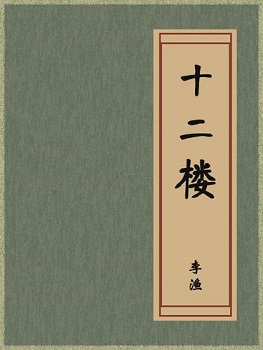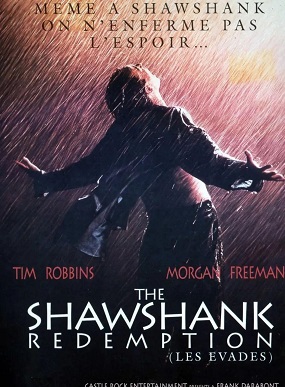"The dinners are better at Edon's than at Bombarda's," exclaimed Zephine.
"I prefer Bombarda to Edon," declared Blachevelle. "There is more luxury. It is more Asiatic. Look at the room downstairs; there are mirrors [glaces] on the walls."
"I prefer them [glaces, ices] on my plate," said Favourite.
Blachevelle persisted:--
"Look at the knives. The handles are of silver at Bombarda's and of bone at Edon's. Now, silver is more valuable than bone."
"Except for those who have a silver chin," observed Tholomyes.
He was looking at the dome of the Invalides, which was visible from Bombarda's windows.
A pause ensued.
"Tholomyes," exclaimed Fameuil, "Listolier and I were having a discussion just now."
"A discussion is a good thing," replied Tholomyes; "a quarrel is better."
"We were disputing about philosophy."
"Well?"
"Which do you prefer, Descartes or Spinoza?"
"Desaugiers," said Tholomyes.
This decree pronounced, he took a drink, and went on:--
"I consent to live. All is not at an end on earth since we can still talk nonsense. For that I return thanks to the immortal gods. We lie. One lies, but one laughs. One affirms, but one doubts. The unexpected bursts forth from the syllogism. That is fine. There are still human beings here below who know how to open and close the surprise box of the paradox merrily. This, ladies, which you are drinking with so tranquil an air is Madeira wine, you must know, from the vineyard of Coural das Freiras, which is three hundred and seventeen fathoms above the level of the sea. Attention while you drink! three hundred and seventeen fathoms! and Monsieur Bombarda, the magnificent eating-house keeper, gives you those three hundred and seventeen fathoms for four francs and fifty centimes."
Again Fameuil interrupted him:--
"Tholomyes, your opinions fix the law. Who is your favorite author?"
"Ber--"
"Quin?"
"No; Choux."
And Tholomyes continued:--
"Honor to Bombarda! He would equal Munophis of Elephanta if he could but get me an Indian dancing-girl, and Thygelion of Chaeronea if he could bring me a Greek courtesan; for, oh, ladies! There were Bombardas in Greece and in Egypt. Apuleius tells us of them. Alas! always the same, and nothing new; nothing more unpublished by the creator in creation! Nil sub sole novum, says Solomon; amor omnibus idem, says Virgil; and Carabine mounts with Carabin into the bark at Saint-Cloud, as Aspasia embarked with Pericles upon the fleet at Samos. One last word. Do you know what Aspasia was, ladies? Although she lived at an epoch when women had, as yet, no soul, she was a soul; a soul of a rosy and purple hue, more ardent hued than fire, fresher than the dawn. Aspasia was a creature in whom two extremes of womanhood met; she was the goddess prostitute; Socrates plus Manon Lescaut. Aspasia was created in case a mistress should be needed for Prometheus."
Tholomyes, once started, would have found some difficulty in stopping, had not a horse fallen down upon the quay just at that moment. The shock caused the cart and the orator to come to a dead halt. It was a Beauceron mare, old and thin, and one fit for the knacker, which was dragging a very heavy cart. On arriving in front of Bombarda's, the worn-out, exhausted beast had refused to proceed any further. This incident attracted a crowd. Hardly had the cursing and indignant carter had time to utter with proper energy the sacramental word, Matin (the jade), backed up with a pitiless cut of the whip, when the jade fell, never to rise again. On hearing the hubbub made by the passersby, Tholomyes' merry auditors turned their heads, and Tholomyes took advantage of the opportunity to bring his allocution to a close with this melancholy strophe:--
"Elle etait de ce monde ou coucous et carrosses[3]
Ont le meme destin; Et, rosse, elle a vecu ce que vivant les rosses, L'espace d'un matin!"
[3] She belonged to that circle where cuckoos and carriages share the same fate; and a jade herself, she lived, as jades live, for the space of a morning (or jade).
"Poor horse!" sighed Fantine.
And Dahlia exclaimed:--
"There is Fantine on the point of crying over horses. How can one be such a pitiful fool as that!"
At that moment Favourite, folding her arms and throwing her head back, looked resolutely at Tholomyes and said:--
"Come, now! the surprise?"
"Exactly. The moment has arrived," replied Tholomyes. "Gentlemen, the hour for giving these ladies a surprise has struck. Wait for us a moment, ladies."
"It begins with a kiss," said Blachevelle.
"On the brow," added Tholomyes.
Each gravely bestowed a kiss on his mistress's brow; then all four filed out through the door, with their fingers on their lips.
Favourite clapped her hands on their departure.
"It is beginning to be amusing already," said she.
"Don't be too long," murmured Fantine; "we are waiting for you."
“爱同饭店比蓬巴达酒家好。”瑟芬叫着说。
“我喜欢蓬巴达胜过爱同,”勃拉什维尔说,“这里来得阔绰些,有些亚洲味儿。你们看下面的那间大厅,四面墙上都有镜子。”
“我只注意盘子里的东西。”宠儿说。
勃拉什维尔一再坚持说:
“你们瞧这些刀子。在蓬巴达酒家里刀柄是银的,在爱同店里是骨头的。银子当然比骨头贵重些。”
“对那些装了银下巴的人来说,这话却不对。”多罗米埃说。
这时他从蓬巴达的窗口望着残废军人院的圆屋顶。
大家寂静下来。
“多罗米埃,”法梅依叫道,“刚才李士多里和我辩论了一番。”
“辩论固然好,相骂更加妙。”多罗米埃回答。
“我们辩论哲学问题。”
“哼。”
“你喜欢笛卡儿还是斯宾诺莎①?”
①斯宾诺莎(Spinosa),十八世纪荷兰唯物主义哲学家。
“我喜欢德佐吉埃①。”多罗米埃说。
下了那判词以后,他又喝酒,接着说:
“活在世上,我是同意的。世界上并不是一切都完蛋了的,既然我们还可以胡思乱想。因此我感谢永生的众神。我们说谎,但我们会发笑,我们一面肯定,但我们一面也怀疑。三段论里常出岔子。有趣。这世上究竟还有一些人能洋洋得意地从那些与众不同的见解中拿出一些特别玩意儿。诸位女士,你们安安静静喝着的那些东西是从马德拉②来的酒,你们应当知道,是古拉尔·达·弗莱拉斯地方的产品,那里超出海面三百十七个脱阿斯③!喝酒时你们应当注意这三百十七个脱阿斯!而那位漂亮的饭店老板蓬巴达凭着这三百十七个脱阿斯,却只卖你们四法郎五十生丁④!”
法梅依重行把话打断了:
“多罗米埃,你的意见等于法律。哪一个作家是你所最欣赏的?”
“贝尔……。”
“贝尔坎⑤!”
“不对,贝尔舒⑥。”
①德佐吉埃(Desaugiers),当时歌手。
②马德拉群岛(Madère),在大西详,葡萄牙殖民地。
③脱阿斯(toise),约等于二公尺。
④生丁(centime),法国辅币名,等于百分之一法郎,又译“分”。
⑤贝尔坎(Berquin,1747-1791),法国文学家。
⑥贝尔舒Berchoux,十九世纪法国一个食谱作者。
多罗米埃又接下去说:
光荣属于蓬巴达!假使他能为我招来一个埃及舞女,他就可以和艾勒芳达的缪诺菲斯媲美;假使他能为我送来一个希腊名妓,他就可以和喀洛内的迪瑞琳媲美了!因为,呵,女士们,希腊和埃及,也有过蓬巴达呢。那是阿普列乌斯①告诉我们的。可惜世界永远是老一套,绝没有什么新东西。在造物主的创作里,再也没有什么未发表的东西,所罗门说过:‘在太阳下面没有新奇的事物。’维吉尔②说过:‘各人的爱全是一样的。’今天的男学生和女学生走上圣克鲁的篷船,正和从前亚斯巴昔和伯利克里③乘舰队去萨摩斯一样。最后一句话。诸位女士,你们知道亚斯巴昔是什么人吗?她虽然生在女子还没有灵魂的时代,她却是一个灵魂,是一个紫红色的比火更灿烂、比朝暾更鲜艳的灵魂。亚斯巴昔是个兼有女性两个极端性的人儿,她是一个神妓,是苏格拉底④和曼侬·列斯戈⑤的混合体。亚斯巴昔是为了普罗米修斯⑥需要一个尤物的原故而生的。”
①阿普列乌斯(Apulée,约123-约180),罗马作家,哲学家,《变形记》和《金驴》的作者。
②维吉尔(Virgile,前70-19),杰出的罗马诗人。③伯利克里(Périclès,约前490一429),雅典政治家,亚斯巴昔是他的妻子。萨摩斯是他征服的一个岛。
④苏格拉底(Socrate,约前469-399),古希腊唯心主义哲学家,奴隶主贵族思想家。
⑤曼侬·列斯戈ManonLescaut,十八世纪法国作家普莱服所作小说《曼侬·列斯戈》中的女主角。
⑥普罗米修斯Prométhée,希腊神话中窃火给人类的神。
假使当时没有一匹马倒在河沿上,高谈阔论的多罗米埃是难于住嘴的。由于那一冲击,那辆车子和这位高谈阔论者都一齐停下来了。一匹又老又瘦只配送给屠夫的博斯母马,拉着一辆很重的车子。那头精疲力竭的牲口走到蓬巴达的门前,不肯再走了。这件意外的事引来不少观众。一面咒骂、一面生气的车夫举起鞭子,对准目标,狠狠一鞭下去,同时嘴里骂着“贱畜牲”时,那匹老马已倒在地上永不再起了。在行人轰动声中多罗米埃的那些愉快的听众全掉转头去看了,多罗米埃趁这机会念了这样一节忧伤的诗来结束他的演讲:
在这世界上,
小车和大车,
命运都一样;
它是匹劣马,
活得象老狗,
所以和其他劣马一样。①
“怪可怜的马。”芳汀叹着说。
于是大丽叫起来了:
①有这样一首悼念幼女夭亡的古诗:
Mais elle était du monde où les plus belles cnoses
Ont le pire destin,
Et,rose ell a vécu ce que vivent les roses,
L'espace d'un matin
诗的大意是:在这世界上,最美丽的东西,命运也最坏,她是一朵玫瑰,所以和玫瑰一样,只活了一个早晨。多罗米埃把这首诗改动了几个字,用来悼念那匹死马,主要是以“驽马”rosse代“玫瑰”rose,“恶狗”(matin)代“早晨”(matin),结果这诗的内容就变成现在这个样子。
“你们瞧芳汀,她为那些马也叫屈了!有这样蠢的人!”
这时宠儿交叉起两条胳膊,仰着头,定睛望着多罗米埃说:
“够了够了!还有那古怪玩意儿呢?”
“正是呵。时候已经到了,”多罗米埃回答说,“诸位先生,送各位女士一件古怪玩意儿的时候已经到了。诸位女士,请等一会儿。”
“先亲一个嘴。”勃拉什维尔说。
“亲额。”多罗米埃加上一句。
每个人在他情妇的额上郑重地吻了一下,四个男人鱼贯而出,都把一个手指放在嘴上。
宠儿鼓着掌,送他们出去。
“已经很有意思了。”她说。
“不要去得太久了,”芳汀低声说,“我们等着你们呢。”







